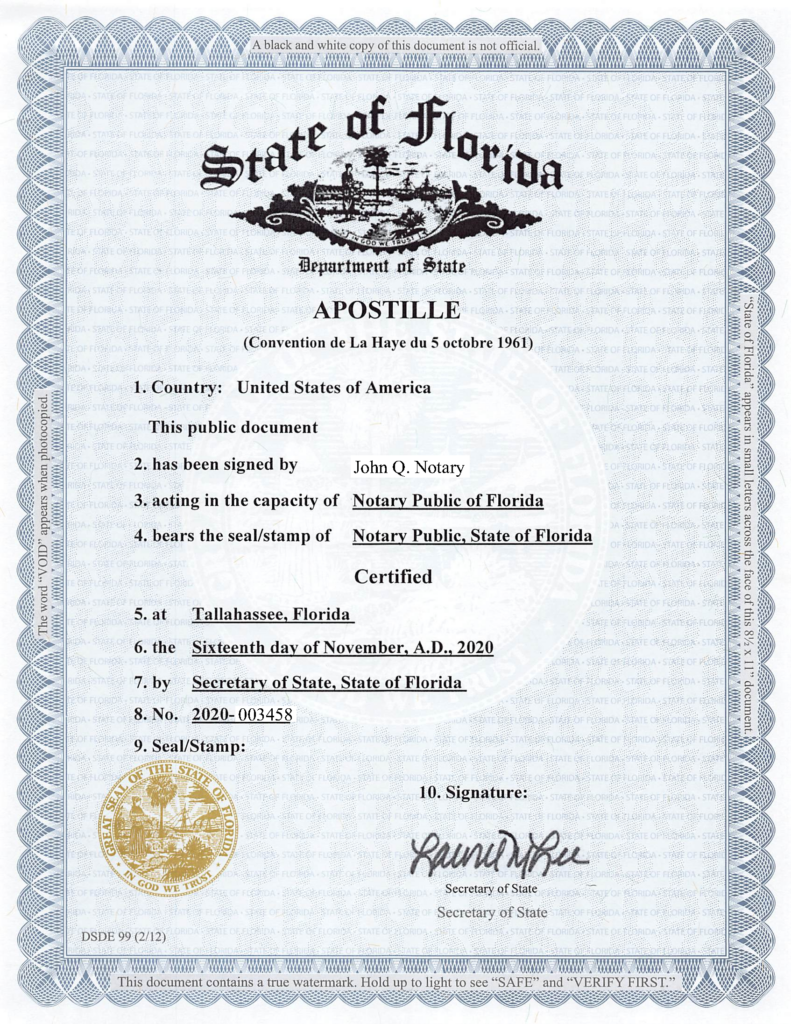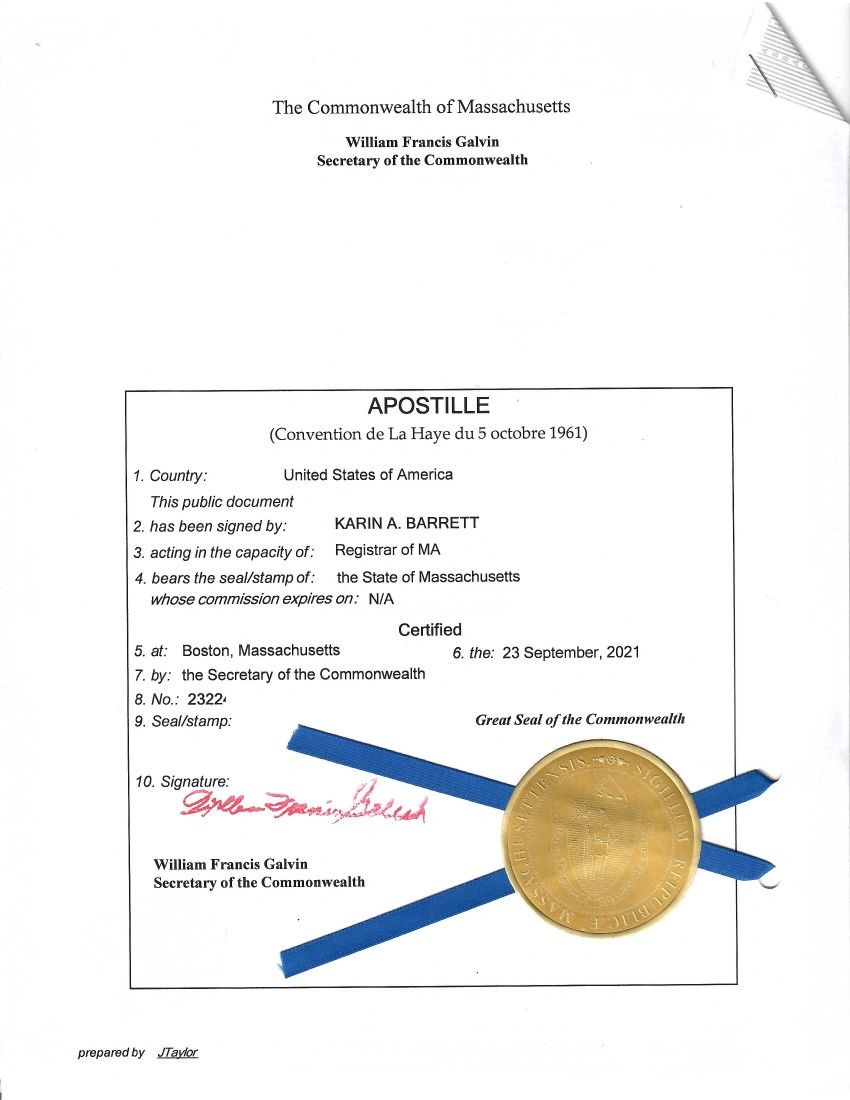Apostille Houston Solution-- Licensed Document Verification for All Needs
Apostille Houston Solution-- Licensed Document Verification for All Needs
Blog Article
Comprehending the Apostille Refine: A Comprehensive Guide to International File Authentication
Browsing the complex landscape of international record authentication can be intimidating without a clear understanding of the apostille procedure. This overview carefully describes the necessary steps, from determining which records require accreditation to sending them for verification by the Competent Authority. Realizing the significance of an apostille and acknowledging prospective risks, such as incomplete entries and language obstacles, can considerably enhance the verification trip. What specifically defines an apostille, and why is it so critical for documents destined for Hague Convention nations? These questions form the foundation of our expedition right into this crucial lawful procedure.
What Is an Apostille?
An apostille is an official certification that validates the authenticity of a record for usage in an additional nation. This accreditation, provided by a designated authority in the country where the paper came from, guarantees that the document is recognized as legitimate and legitimate in the worldwide arena. The procedure of acquiring an apostille includes several actions, consisting of the confirmation of the paper's signatures, seals, and stamps by appropriate governmental bodies.
The apostille works as a globally identified form of verification, implemented by the Hague Convention of 1961. This treaty, officially called the Hague Convention Eliminating the Demand of Legalisation for Foreign Public Papers, systematizes the process of record qualification among participant nations. The apostille itself is a standardized certification that includes specific details, such as the issuing authority, the native land, and the date of issuance.
It is necessary to note that not all documents are qualified for an apostille. Usually, public documents like birth certifications, marriage licenses, court orders, and instructional diplomas get approved for this certification. Personal documents, such as agreements and contracts, might require registration and extra steps to certify.
Importance of Apostille
Comprehending what an apostille is sets the stage for appreciating its significance in global transactions. houston tx apostille. An apostille, basically a form of accreditation provided by a designated authority, confirms the authenticity of a record for use in international countries that are notaries to the Hague Apostille Convention. This standardized process removes the demand for additional legalisation by consular offices or consular offices, consequently streamlining worldwide purchases
The importance of an apostille can not be overemphasized. It ensures the credibility and acceptance of necessary documents-- such as copyright, marital relationship licenses, and instructional diplomas-- throughout borders. For companies, it assists in the smooth conduct of global profession, mergers, and acquisitions by offering a trusted technique of paper verification. This minimizes governmental hurdles, saving both time and sources.
Moreover, an apostille boosts legal security and conformity. Governments and establishments can with confidence count on the credibility of documents bearing an apostille, minimizing why not look here the threat of fraudulence and misrepresentation.
Records That Require Apostille
When involving in international deals or lawful matters, specific files usually require the verification provided by an apostille. This ensures their acknowledgment and approval in nations that are notaries to the Hague Apostille Convention. Generally, personal files such as copyright, marriage certificates, and fatality certifications require an apostille, particularly when they are utilized for procedures like migration, marriage abroad, or worldwide probate matters.
Educational documents are one more classification regularly calling for apostilles. Diplomas, transcripts, and academic records typically need this authentication for functions such as seeking more education and learning, employment, or expert licensing in a foreign nation (houston tx apostille). This action ensures that the records are recognized as genuine and valid
Legal files, consisting of powers of lawyer, affidavits, and court orders, likewise typically require apostilles. Company files such as certificates of unification, bylaws, and industrial agreements might call for an apostille to assist in global profession, develop international branches, or involve in cross-border legal proceedings.
Steps to Obtain an Apostille

Obtaining an apostille includes a multi-step process that guarantees the authenticity and approval of your records in international nations. The first action is identifying which papers require an apostille. houston browse around this web-site tx apostille. Typical records include copyright, marital relationship licenses, academic transcripts, and corporate papers
As soon as recognized, the paper needs to be certified by the appropriate releasing authority. This might involve registration by a notary public or verification by a neighborhood or state authorities, depending on the sort of document. After accreditation, the file ought to be submitted to the assigned Competent Authority in the paper's nation of beginning. In the USA, for instance, this is usually the Secretary of State's office for each state.
The submission procedure typically requires a completed application kind, the initial document, and a charge. Some territories might provide the alternative of expedited processing for an additional cost. Upon effective confirmation, the Competent Authority will certainly attach the apostille certificate to the site link document, therefore confirming its credibility.
Common Difficulties and Solutions
Navigating the apostille procedure can present numerous typical difficulties that, if not effectively dealt with, might postpone or complicate record verification. Each nation has details needs for the kinds of files that can be apostilled, and any type of variance from these can result in denial.
Another common difficulty is understanding the varied processing times. Processing times can vary significantly between countries and also in between various regions within the exact same country. It is important to account for these variants when preparing the apostille procedure to avoid unforeseen hold-ups.
In addition, language obstacles can present significant obstacles. Records in a foreign language frequently require licensed translations, and any kind of mistakes in translation can cause further issues. Involving an expert translation service can minimize this risk.

Conclusion
Grasping the apostille procedure considerably improves the efficiency of international paper verification. By understanding the need of recognizing and licensing required papers, and navigating the submission to the Competent Authority, the procedure comes to be extra manageable. Awareness of usual challenges, such as insufficient entries and language barriers, additionally help in avoiding possible hold-ups. Guaranteeing records are appropriately apostilled promotes their approval in Hague Convention signatory countries, consequently sustaining smooth global lawful and administrative procedures.
Report this page